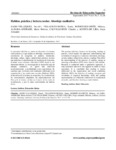
Please use this identifier to cite or link to this item:
http://ricaxcan.uaz.edu.mx/jspui/handle/20.500.11845/654Full metadata record
| DC Field | Value | Language |
|---|---|---|
| dc.contributor | 864842 | es_ES |
| dc.contributor.other | 0000-0001-5389-574X | es_ES |
| dc.contributor.other | https://orcid.org/0000-0001-5389-574X | - |
| dc.contributor.other | 0000-0001-5389-574X | - |
| dc.coverage.spatial | Latinoamerica | es_ES |
| dc.creator | Jasso Velázquez, David | - |
| dc.creator | Villagrán Rueda, Sonia | - |
| dc.creator | Rodríguez Ortíz, Mónica | - |
| dc.creator | Aldaba Andrade, María Dolores | - |
| dc.creator | Calvillo Ríos, Claudia | - |
| dc.creator | Acosta De Lira, Jorge Armando | - |
| dc.date.accessioned | 2018-10-16T15:38:54Z | - |
| dc.date.available | 2018-10-16T15:38:54Z | - |
| dc.date.issued | 2017-09-17 | - |
| dc.identifier | info:eu-repo/semantics/publishedVersion | es_ES |
| dc.identifier.issn | 2523-0336 | es_ES |
| dc.identifier.uri | http://hdl.handle.net/20.500.11845/654 | - |
| dc.description | The present reflection focuses on discerning reading as practice, which implies the approach, understanding and correlation of categories of analysis: institution, ideology, culture, subject, subjectivity, practice, reading; That allow the understanding of the practice of reading, taking as referring to Bourdieu (1995) from what he calls habitus. Research is conducted under a qualitative approach. A semi-structured interview was applied in depth to three specialists. It is concluded that reading is totally imbricated in the organization and social conditions (Bahloul, 2003); the initiative of reading, reception and circulation of acquired knowledge, book and reading representations act within the framework of socialization networks, and therefore forming a reader habitus | es_ES |
| dc.description.abstract | La presente reflexión se centra en discernir a la lectura como práctica, lo que implica el abordaje, comprensión y correlación de categorías de análisis: institución, ideología, cultura, sujeto, subjetividad, práctica, lectura; que permitan el entendimiento de la práctica de la lectura, tomando como referente a Bourdieu (1995) desde lo que denomina habitus. La investigación se desarrolla bajo un enfoque cualitativo. Se aplicó una entrevista semiestructurada a profundidad a tres especialistas. Se concluye que, la lectura está totalmente imbricada en la organización y las condiciones sociales (Bahloul, 2003); la iniciativa de la lectura, la recepción y la circulación de los conocimientos adquiridos, las representaciones del libro y de la lectura actúan en el marco de las redes de socialización, y por lo tanto conformando un habitus lector | es_ES |
| dc.language.iso | spa | es_ES |
| dc.publisher | ECORFAN | es_ES |
| dc.relation | https://www.ecorfan.org/republicofperu/research_journals/Revista_de_Educacion_Superior/vol1num1/Revista_de_Educaci%C3%B3n_Superior_V1_N1_2.pdf | es_ES |
| dc.relation.uri | generalPublic | es_ES |
| dc.rights | Atribución-NoComercial-CompartirIgual 3.0 Estados Unidos de América | * |
| dc.rights.uri | http://creativecommons.org/licenses/by-nc-sa/3.0/us/ | * |
| dc.subject.classification | CIENCIAS SOCIALES [5] | es_ES |
| dc.subject.other | Lectura | es_ES |
| dc.subject.other | habitus | es_ES |
| dc.subject.other | Educación básica | es_ES |
| dc.title | Habitus, práctica y lectura escolar. Abordaje cualitativo | es_ES |
| dc.type | info:eu-repo/semantics/article | es_ES |
| Appears in Collections: | *Documentos Académicos*-- UA Psicología | |
Files in This Item:
| File | Description | Size | Format | |
|---|---|---|---|---|
| Revista_de_Educación_Superior_V1_N1_2.pdf | 386,01 kB | Adobe PDF |  View/Open |
This item is licensed under a Creative Commons License
